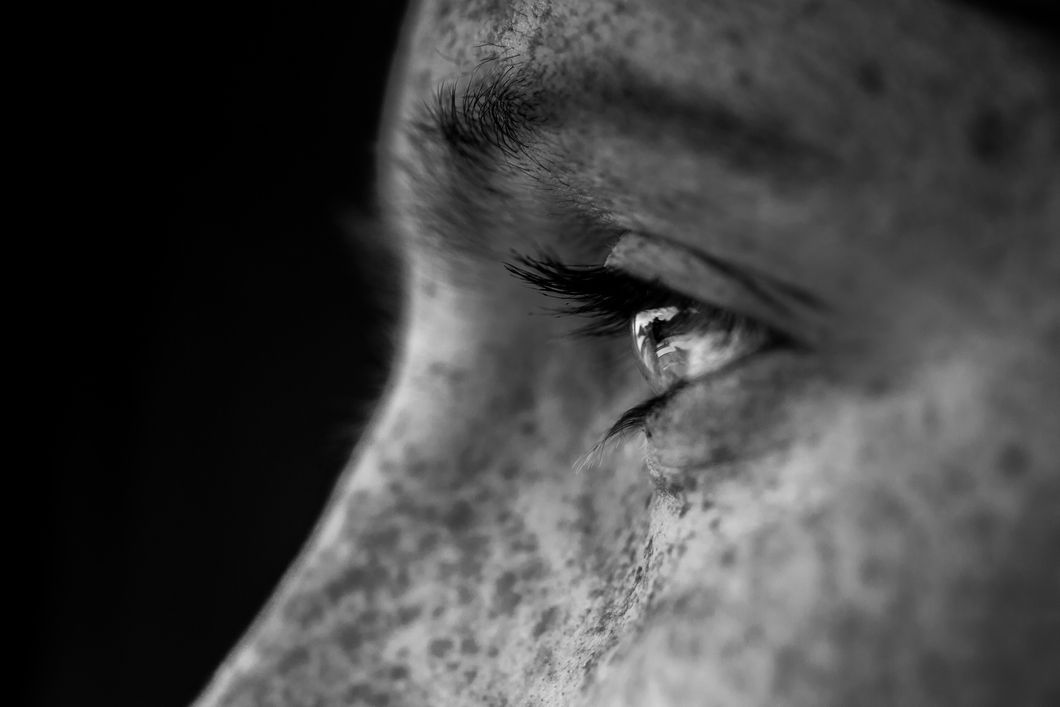Think of your favorite smells in the world—chocolate chip cookies baking in the oven, the beach on a warm summer night, your mom's perfume—now imagine what it would be like to have those three things not mean anything to you.
Think of your favorite sounds—onions sizzling on the stovetop, the chirp of crickets as you look up at the stars, or the comforting silence of your room as you fall asleep each night—now imagine what it would be like to have never experienced any of those.
Finally, think of your favorite colors—the fluorescent shades of orange, pink, and yellow at sunset, the glistening turquoise waters of the tropics, or the impossible purple, cerulean, and green blooms signifying the onset of spring—and imagine never having experienced any of it at all.
Working in retail means that you must be ready to help customers with any need at any time. Whether that entails retrieving clothing that a patron wants to see from a top shelf, checking back storerooms for extra sizes, or even giving someone your opinion on how they look in what they're trying on, no task is too small or unimportant. It was an ordinary Friday afternoon, however, when I realized that these small efforts of mine are not for naught, and actually impact the lives of those who, from the outside, seem to be living and seeing just like you and me.
As always, my co-worker and I warmly greeted a family walking into the shop with our usual, "Hi, how are you guys? Are you looking for anything in particular today?" to which we most often hear, "Just browsing, thanks," in reply.
A man, woman, and two young boys, each swiftly went their separate ways upon spotting the area that suited their interests most, but as I folded a pile of shirts nearby, the woman quietly motioned for me to join her in front of a rack of dresses and a selection of shoes about ten feet away. She quickly reached into her oversized handbag and pulled out a pair of white and navy blue striped espadrille sandals that I imagined suit her well. Turning her gaze back to the wall of dresses in front of her, she asked me if the shoes that she was holding were the same color as those resting below the frocks before us.
"Yes, those colors would look great with this pale yellow," I replied as I reached out to gently bring forward a pale yellow wrap dress, just to the left of us. The woman smiled, nodded, and asked to see it in an extra-small, "her" size she informed me. Seemingly in her mid-to-late forties, the woman was dressed like she had just come from exercising, donning bright purple leggings, a white top, and gray trainers, comfortable yet stylish, and a flattering color combination against her skin tone.
After trying on several dresses that I had recommended her, she emerged from the dressing rooms looking satisfied, but not overly excited by her selections.
"Did these work out? How do you like yourself in them?" I questioned, unsure why she had not made her way to the register yet like most customers who had found what they were looking for.
"It's just—and be honest—do these colors go well together?" she questioned. I thought nothing of this, as I have been asked this question dozens of times by women and men who want to make sure that their eyes are not deceiving them, and that the shades, patterns, or textures all align.
"Yes, these shoes are a nice navy blue, and this dress is a beautifully vibrant coral color," I articulated, pleased with myself.
"I'm colorblind, so I just want to make sure," she said, immediately halting the words coming out of my mouth, which I realized meant nothing to her. In my shock, I tried to stutter on that they were both beautiful, complementary shades most often paired with gold or white, to which I was met with a kind, patient "that means nothing to me" expression on her face. I sat there dumbfounded for a moment, grappling with what to say next, when I realized that I had never met someone who was color-blind before, let alone had been asked what the color blue looked like. It's just blue.
After stating that, in my opinion, the outfit would look lovely on her and that she need not worry about it not matching, she purchased the dress, thanked me, and left me, contemplating that which I hadn't before: How would I see the world if I could not see it in its fullness and splendor? The endlessly blue sky, the deep green leaves of a banana tree, the blackness of the ocean when rain clouds roll in, or the pink of my favorite childhood dress I'm wearing in every old photograph—all of it, what would life be like without experiencing these things? It still gives me pause.
I don't pity this woman, nor do I see her—a jubilant, kind, and caring soul—as a victim or tragedy by any means. My experience with her as she laughed, joked, and even poked fun at her own disability gave me a much-needed reality and privilege check. Next time I'm complaining that it's too gray of a day outside, or that I need to bring some more color into my wardrobe when getting dressed in the morning, I will think of her joy, her smile, and positivity toward living, no matter how she sees it.

















